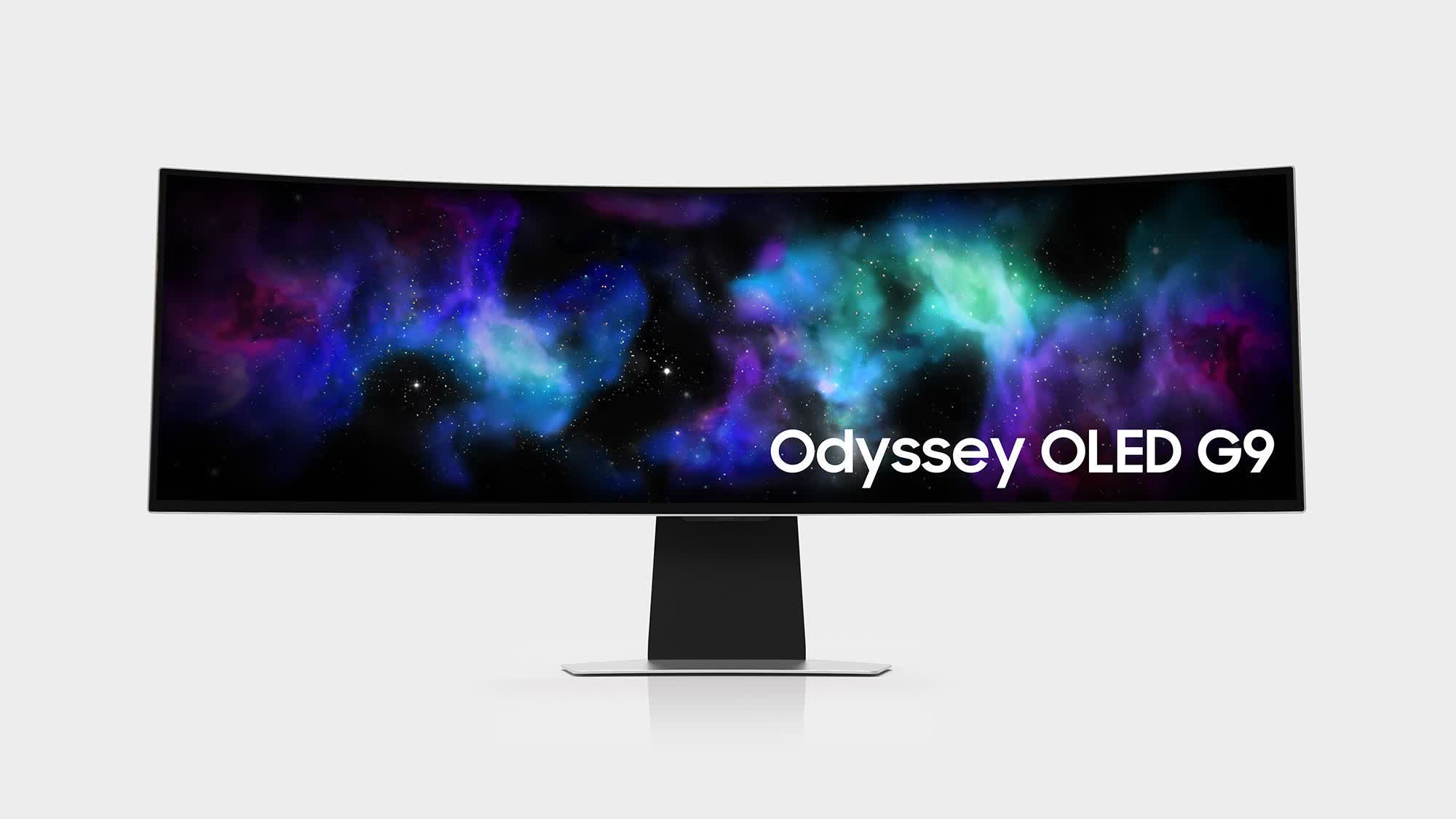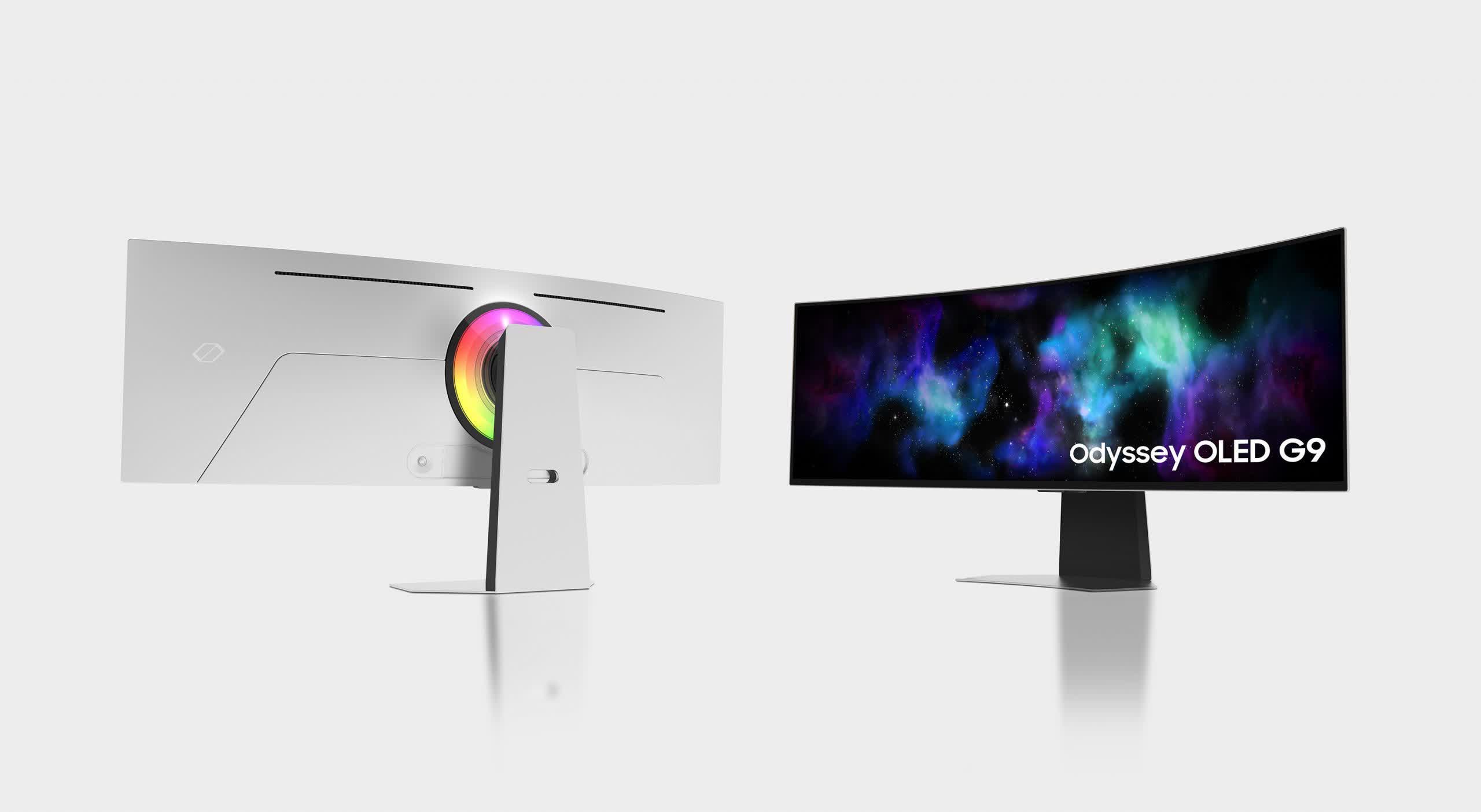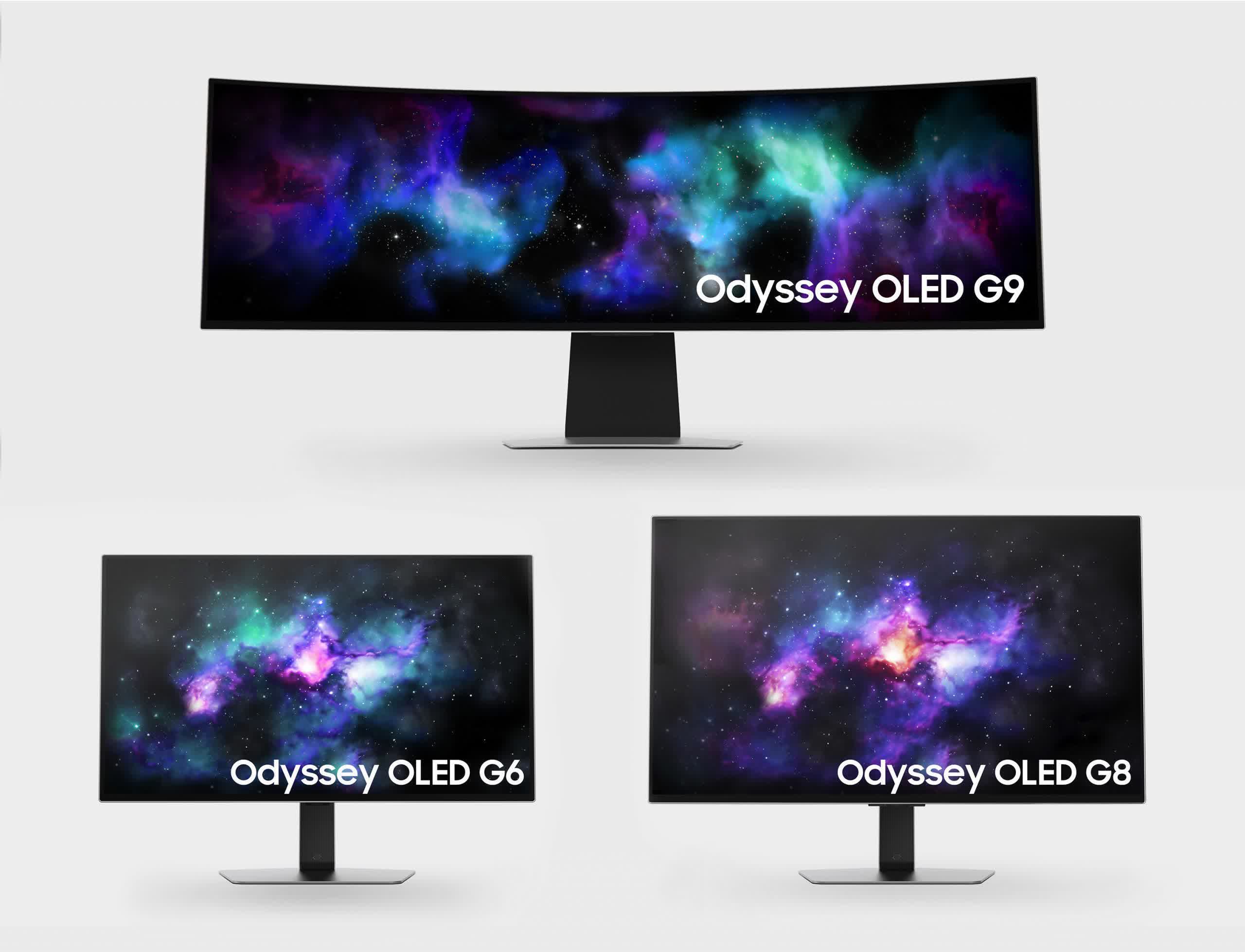Something to look forward to: Several manufacturers are unveiling new high-end monitors set to debut during CES this month or sometime in the first quarter of 2024. Samsung is the latest with three new Odyssey models offering 4K and 1440p resolutions at high refresh rates. Some of the company's proprietary technology could give its models a slight edge for some users.
Samsung has unveiled the new Odyssey G9, G8, and G6 OLED gaming monitors, which it plans to showcase at CES next week. The upcoming products feature specs similar to anticipated models that are coming from the likes of HP, Dell, MSI, Asus, and LG plan to reveal soon.
Like most other companies, Samsung is releasing a 4K 240Hz monitor – the 32-inch Odyssey G8 G80SD – and a 1440p 360Hz option, the 27-inch Odyssey G6 G60SD. The new Odyssey G8 is the company's first flat 32-inch 4K panel. Both new monitors promise 0.03ms GTG response times.

However, Samsung's most unique entry is the 49-inch Odyssey G9 G95SD. The curved ultra-wide 32:9 screen delivers 5120 x 1440 resolution at 240Hz. While the company didn't mention the exact curvature, 1800R seems to be the standard among offerings of similar specs.
All three monitors feature VESA DisplayHDR True Black 400 and support AMD FreeSync Premium. Furthermore, they include two HDMI 2.1 ports, a USB hub, and a DisplayPort 1.4 input.

One of Samsung's exclusive features is OLED Glare-Free, which should improve image quality in various lighting conditions without requiring additional equipment. Another is Multi Control, enabling the Odyssey G9 and G8 to connect to certain Samsung devices like Galaxy tablets and phones for extra screen real estate. These two models can also connect to compatible IoT devices through Samsung's SmartThings Hub.
The competition is set to offer generally similar monitors to the G8 and G9, with a few unique features to set them apart. HP's 32-inch 4K Omen Transcend might be the only monitor in the race with DisplayPort 2.1. Additionally, it has the highest power delivery wattage at 140W (Asus and MSI have confirmed 90W) and unique burn-in mitigation technology. Meanwhile, LG's 32-inch 4K UltraGear includes Dual-Hz, allowing it to switch between 4K at 240Hz and 1080p at 480Hz.
None of the companies have revealed pricing yet or exact release dates for their monitors. Expect more information from all of them once CES kicks off next Tuesday, January 9.
